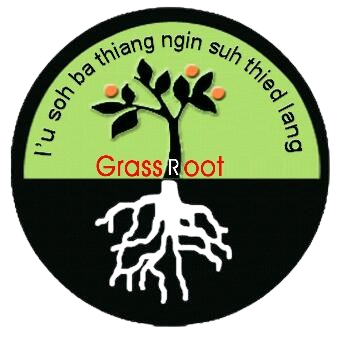The project Skills to Succeed, supported by Quest Alliance was implemented by Grassroot from August 14, 2020 to November 21, 2020 after receiving written permissions from the District Authority and the respective Community Heads. The project aimed to imbibe the youth members, aged 16 to 30 years, with skills needed for self-employment and employability skills pertinent to livelihood opportunities.
The training took place in six villages, viz, Lumshyrmit, Cham Cham, Iapmala, Sohkymphor, Wapung and Moolang villages from Khliehriat Block, East Jaintia Hills District, Meghalaya. The training was facilitated by our four trainers from Grassroot. Altogether, there were 156 trainees consisting of 25 male members and 131 female members trained in six batches. The training programme was conducted for 20 days on a daily basis from 9:00 AM to 3:00PM which included both theory and practical sessions. The resource persons for Food processing, Floriculture and handicraft activities were invited from Jaintia Hills District, both West and East Jaintia Hills, to encourage local entrepreneurs and to build a stronger and a concrete collaboration.
The training also aims to encourage and motivate the youth towards self-employment opportunities and sustainability in order to upscale the rural economy. The skills trained are classified into two categories:
1. Hard skills- The training facilitated under this category are Bio-concoctions, Food Processing, Bokashi Piggery, Livestock health and nutrition, Floriculture, Handicrafts, Photography, Sustainable tourism, Digital literacy, Enterprise development and Fundraising.
2. Soft skills- The skills include leadership, problem solving, conflict management, gender and career, communication, time management, team building, presentation and positive attitude.
Skills mapping activity was done to map the skills possessed by the trainees. This activity in particular helped the trainees to realize what skills they possessed and what skills they wanted to imbibe in order to achieve their dreams and aspirations. The skills of the trainees were mapped prior to the training so as to understand what the trainees want. The training focuses not only on hard skills but gives equal weight to soft skills so that the trainees are equipped in handling issues and problems that require the work of mind. It is indeed important to learn how to make effective conversations, to understand the value of human relationships through interpersonal communications and to be able to cope during the times of conflict. The training also provided an opportunity for the students to improve in their presentation skills during the classroom sessions. Time management of the activities is strictly followed for the smooth functioning of the training. Inclusive football was organized where football was used as a tool to break gender stereotypes and promote the concept of team building. We see so many disagreements, conflicts in our homes, localities, relationships but sports has its own factor in bringing everyone into a state of commonness, to empower each other, to believe in the power of equity and effective leadership.
The trainees were made informed on their rights such as Free Prior and Informed Consent (FPIC) and Intellectual Property Rights (IPR) that are pertinent to the indigenous peoples. Using computers and mobile phones are now the norm in our sessions which adds a good mix of activity-based and tech-based learning. Our students now understand and engage with digital learning thereby helping students adapt and bridge the digital disconnection. The ultimate selling point of the training was the money making model through fundraising. Here the trainees shared capital investments with their group members, produced pickles, juices, jams and confectionaries. The purpose in providing a fundraising platform is to test the creativity skills of the trainees to practically apply whatever they have learned or taken away from the training. Till date the trained aspiring entrepreneurs sold 300 bottles of juice and more than 600 bottles and pouches of pickles that come in different varieties of flavors and prices, and eatables like cakes, jams, biscuits and other indigenous snacks. The trainees earned profit from the fundraising and this activity has motivated them, boosted their confidence and currently taking steps to expand their production scale. A football competition was also organized during the fundraising programme to promote and encourage the participation of the community members.
At the end of each batch, a Cultural infotainment programme was conducted by the trainees to provide a platform where the trainees displayed their creativity, skills and knowledge of their own culture propagated through programme organizing, decorating, songs, dances, role play, mime show, cultural fashion show, etc. Post-training, few of the trainees have opened their own shops and sell self-made products, baked goods, juices, pickles and crafted baskets. 3 trainees from Lumshyrmit village have sold more than 300 crafted baskets and even transport these baskets to Bangalore city.

